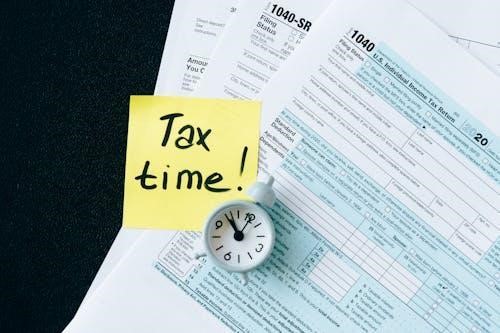Depending on how prepared you are, tax season can be a time of dread or relief. It’s when you count on professionals to ensure every figure aligns, every deduction is legitimate, and every step adheres to tax law. But what happens when the person you trust to handle your finances has ulterior motives? Fraudulent tax preparers exist, and they target the unwary.
The thought of losing hard-earned money—or worse, facing IRS penalties—due to someone else’s negligence or deceit is unsettling. The good news? You can stay ahead of scams by understanding the red flags and knowing how to choose a trustworthy tax professional.
Why Fraudulent Tax Preparers Are a Growing Threat
Fraudulent tax preparers thrive on two things: trust and the complexity of the tax code. Many taxpayers feel overwhelmed by IRS rules and regulations and turn to professionals. Unfortunately, scammers exploit this vulnerability.
According to the IRS, these unscrupulous individuals often promise inflated refunds, manipulate numbers, or steal sensitive information. Victims may not discover the fraud until months later, often during an audit or when identity theft surfaces.
Spotting the Red Flags: Know When to Walk Away
Identifying fraudulent tax preparers starts with knowing the warning signs. Here are a few major red flags to look out for:
- Promises of Exaggerated Refunds – Legitimate tax preparers don’t promise refund amounts before examining your financial information. Be cautious of anyone claiming you’re entitled to large refunds without substantiating their calculations.
- No Preparer Tax Identification Number (PTIN) – The IRS requires all paid tax preparers to have a valid PTIN. If your preparer can’t provide this number or claims it’s unnecessary, it’s time to find someone else.
- Requests to Deposit Refunds Into Their Account – Some fraudulent preparers attempt to intercept refunds by asking clients to deposit funds into their accounts first. A legitimate preparer will always ensure refunds go directly to you.
- Charging Fees Based on Refund Size – Avoid preparers who base their fees on the size of your refund. This practice incentivizes unethical behavior, like inflating deductions or credits, to increase refunds—and fees.
- Refusal to Sign or Provide Their Credentials – A professional tax preparer is transparent about their qualifications and signs the return. Refusal to do so is a significant warning sign of fraud.
The Cost of Trusting the Wrong Tax Preparer
Fraudulent tax preparers can cause severe financial and legal repercussions. Here’s what’s at stake:
- IRS Penalties – You are ultimately responsible for your tax return, even if a preparer commits fraud. Errors or false claims may result in audits, penalties, or fines.
- Identity Theft – Scammers may steal Social Security numbers and other sensitive information, leading to long-term identity theft issues.
- Delayed Refunds – Fraudulent filings can delay your refund for months while the IRS sorts out discrepancies.
- Legal Consequences – Sometimes, taxpayers unknowingly involved in fraudulent activities may face legal action.
How to Choose a Reputable Tax Professional
To safeguard yourself, selecting the right tax preparer is crucial. Follow these steps to ensure you’re working with a trustworthy professional:
- Verify Their Credentials – Check whether the preparer is registered with the IRS and has a valid PTIN. You can also search for enrolled agents, CPAs, or attorneys authorized to represent clients before the IRS.
- Ask About Their Specializations – Some tax preparers specialize in specific industries or filing situations. Ensure their expertise aligns with your needs.
- Check Reviews and References – Look for reviews online or ask for references. Satisfied clients are the best indicators of a preparer’s reliability.
- Review Their Privacy Policies – Ensure they have robust measures to protect your financial and personal information. Secure file-sharing options and clear data retention policies are essential.
- Read the Contract Carefully – Before signing any agreement, read the contract thoroughly. It should outline fees, services provided, and any guarantees.
Staying Vigilant: Tips to Protect Yourself During Tax Season
Even with a trustworthy tax preparer, staying proactive is vital in safeguarding your financial well-being. Here are some practical tips:
- Keep Personal Records Private – Never share sensitive information, like your Social Security number, over email or unsecured networks.
- Double-Check Your Return – Review your tax return before it’s filed. Ensure all information is accurate and consistent with your records.
- Avoid Signing Blank Returns – Some fraudulent preparers ask clients to sign blank tax returns, which they can manipulate. Always review completed forms before signing.
- Monitor Your Tax Status – Use the IRS “Where’s My Refund?” tool to track your refund. If you suspect any discrepancies, act immediately.
- Stay Educated – Familiarize yourself with common tax scams and IRS updates. Awareness is one of the best defenses against fraud.
What to Do If You’ve Been Scammed
If you suspect you’ve fallen victim to a fraudulent tax preparer, act quickly to minimize damage.
- Report the Fraud to the IRS – Use Form 14157 to report the preparer and provide details about their misconduct.
- Monitor Your Credit – Check your credit reports for any signs of identity theft or unauthorized activity.
- File a Police Report – If you suspect identity theft, file a report with your local law enforcement.
- Seek Professional Assistance – Consult a tax attorney or CPA to help resolve any issues with the IRS and prevent further complications.
Why Trust Matters in Tax Preparation
The relationship between a taxpayer and their preparer should be built on trust and transparency. When you work with a legitimate professional, you gain more than accurate returns—you gain peace of mind knowing your financial future is secure.
By being vigilant, asking the right questions, and staying informed, you can protect yourself from fraudulent tax preparers and ensure a smooth tax season.
Don’t Be Tricked By Fraudulent Tax Preparers
Tax season doesn’t have to be a source of anxiety. While the threat of fraudulent tax preparers is absolute, knowledge is your best defense. Understanding red flags, choosing trustworthy professionals, and safeguarding your information empowers you to navigate the process confidently.
Spirit One is here to support you if you’ve ever had concerns about tax fraud or want to share your experiences. Stay informed, stay vigilant, and make informed decisions about who handles your finances.


